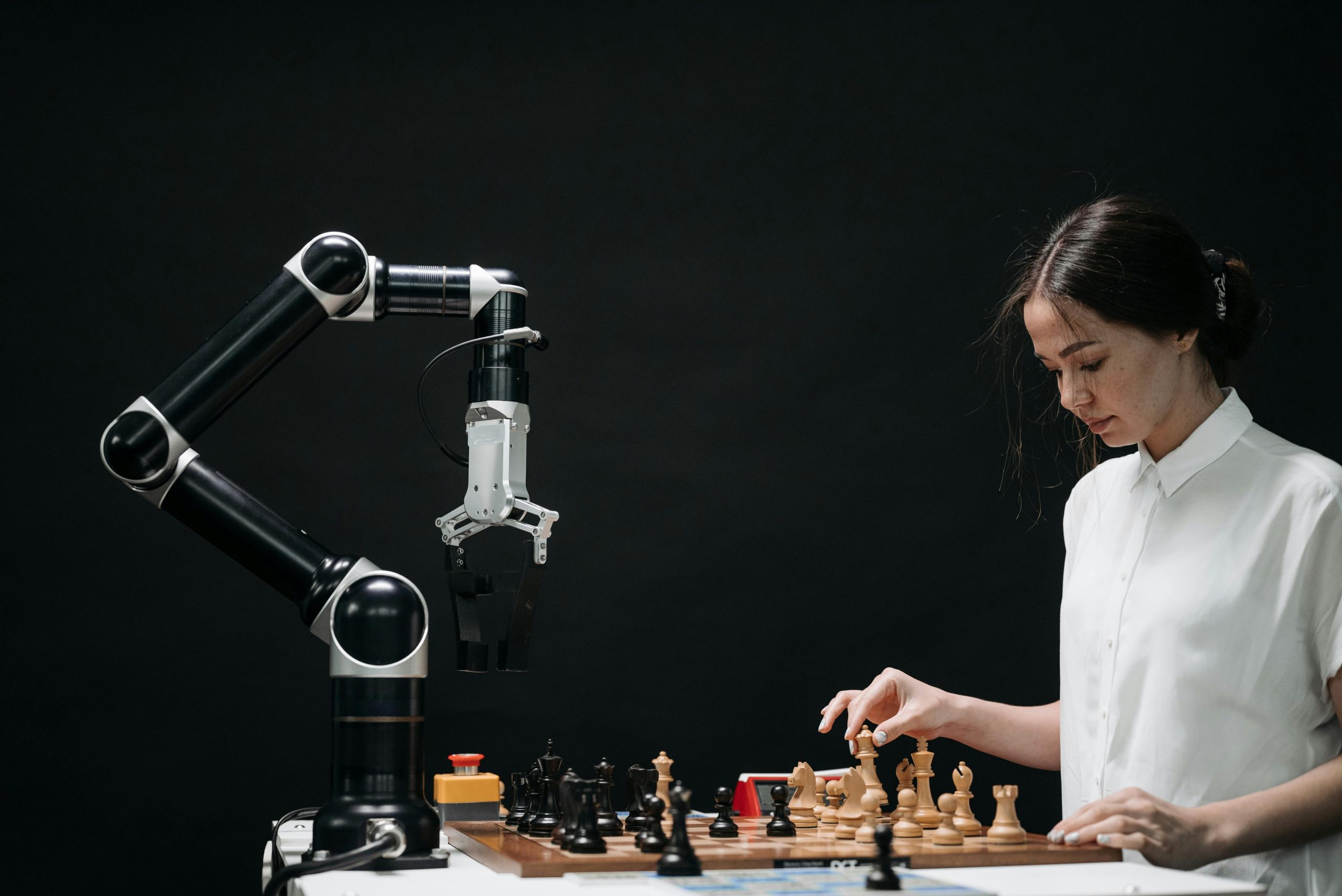In today’s rapidly advancing technological landscape, artificial intelligence (AI) drives transformative innovation across various industries. AI technology has permeated numerous facets of our daily lives and business operations, from intelligent virtual assistants to predictive analytics and autonomous vehicles. In this blog, we delve into some compelling examples of AI technology and explore its diverse applications in the modern world.
Artificial intelligence (AI) is an ever-expanding landscape, revolutionizing industries with its ability to analyze vast datasets, automate tasks, and make predictions. An artificial intelligence degree equips individuals with the required knowledge and skills to navigate this dynamic field. Students gain a deep understanding of AI fundamentals through rigorous coursework covering machine learning, neural networks, natural language processing, and robotics. Hands-on projects and research opportunities further hone their problem-solving abilities and proficiency in AI technologies. With an AI degree, individuals are well-prepared to embark on rewarding careers, driving innovation and shaping the future of AI-driven technologies.
What is Artificial Intelligence?
Artificial Intelligence is a computer science branch that focuses on building systems capable of performing tasks that typically require human intelligence. It encompasses various techniques, including machine learning, natural language processing, computer vision, and robotics. AI systems can typicallyanalyze vast amounts of data, identify patterns, and making decisions or predictions based on this analysis. From virtual assistants like Siri and Alexa to self-driving cars and personalized recommendation systems, AI is integrated into various applications, transforming industries such as healthcare, finance, transportation, and more. Ultimately, AI seeks to replicate human-like intelligence and reasoning, offering solutions to complex problems and driving innovation in the digital age.
Importance of Artificial Intelligence
Artificial Intelligence (AI) holds profound importance in today’s world, driving innovation, efficiency, and transformative change across industries. Its capability to analyze vast amounts of data, recognize patterns, and make autonomous decisions enables businesses to streamline operations, optimize processes, and unlock new growth opportunities. In healthcare, AI facilitates early disease detection, personalized treatment plans, and drug discovery, revolutionizing patient care and outcomes. AI powers algorithmic trading, fraud detection, and risk management in finance, enhancing accuracy and mitigating financial risks. Moreover, AI-driven technologies like autonomous vehicles and smart cities promise to revolutionize transportation, urban planning, and sustainability, shaping the future of society. As AI advances, its potential to solve complex problems, drive innovation, and improve human lives is boundless, making it a cornerstone of the digital age and a catalyst for progress in the 21st century.
Examples of AI Technology and how it is used today
- Automation: AI-driven automation involves using algorithms and software to perform repetitive tasks without human intervention. In manufacturing, logistics, and finance industries, automation streamlines processes, enhances efficiency, and reduces human error. For instance, robotic process automation (RPA) automates manual tasks such as data entry, invoice processing, and customer service inquiries, freeing up human resources for more complex and creative endeavors.
- Natural Language Processing (NLP): NLP enables computers to understand, interpret, and generate human language. Applications of NLP include virtual assistants like Siri and chatbots, which can engage in natural language conversations, answer questions, and perform tasks like scheduling appointments or ordering food. NLP is also used in sentiment analysis, language translation, and text summarization, facilitating communication and information retrieval across languages and platforms.
- Machine Vision: Machine vision involves the use of AI algorithms to interpret and analyze visual information from images or videos. In manufacturing, machine vision systems inspect products for defects, monitor production lines for quality control, and guide robotic arms in assembly tasks. In healthcare, machine vision aids in medical imaging analysis, disease diagnosis, and surgery assistance, enhancing accuracy and efficiency in patient care.
- Self-driving cars: Self-driving cars, or autonomous vehicles, utilize AI technologies such as computer vision, sensor fusion, and machine learning to navigate and operate vehicles without human intervention. Companies like Waymo, Tesla, and Uber are developing self-driving car technology with the potential to revolutionize transportation by improving safety, reducing traffic congestion, and increasing accessibility for individuals unable to drive.
- Robotics: AI-powered robotics combines machine learning, computer vision, and sensor technologies to create intelligent machines capable of performing physical tasks. In manufacturing, robots automate assembly processes, handle materials, and perform intricate tasks with precision and speed. In healthcare, surgical robots assist surgeons in minimally invasive procedures, enhancing surgical outcomes and patient recovery.
- Text, image, and audio generation: AI can generate text, images, and audio content with human-like quality and coherence. Applications include content generation for marketing, creative writing, and art creation. For example, AI-driven tools like GPT-3 can generate realistic text based on prompts, while deep learning models like DALL-E can create images from textual descriptions, expanding possibilities in content creation and design.
- Machine learning: Machine learning is a subset of AI that enables systems to learn from data, identify patterns, and make predictions or decisions without explicit programming. It underpins many AI applications, from personalized recommendation systems in e-commerce and streaming platforms to fraud detection in banking and finance. Machine learning algorithms power virtual assistants, medical diagnostics, and predictive maintenance systems, driving industry efficiency and innovation.
These examples illustrate the diverse and transformative impact of AI technology in various domains, from improving productivity and decision-making to enhancing safety and quality of life. As AI continues to advance, its applications will expand, offering new opportunities for innovation and growth in the digital age.
Conclusion
Exploring examples of AI technology and its current applications reveals artificial intelligence’s vast potential and transformative impact across industries. Aspiring AI professionals can enhance their employability by pursuing an artificial intelligence degree, which equips them with the essential knowledge and skills needed to thrive in this dynamic field. With expertise in machine learning, natural language processing, and computer vision, AI degree holders are well-positioned to contribute to innovative projects, drive business solutions, and shape the future of AI-driven technologies. In a rapidly evolving job market, an AI degree opens doors to exciting career opportunities and empowers individuals to make meaningful contributions to society through AI-driven innovation.
